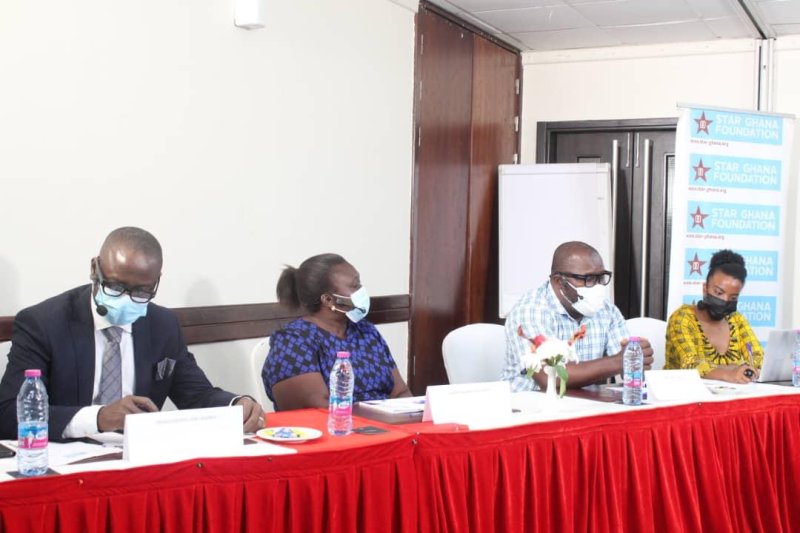
Prof Issahaku said the government must create a balance in allocating resources among the various levels of education to ensure that no segment was left behind.
UNESCO has a spending threshold of 15 per cent to 20 per cent of total public expenditure to improve education.
However, in Ghana the allocation to education declined marginally from 3.6 per cent of Gross Domestic Product in 2021 to 3.5 per cent in 2022.
The Professor said this at a forum on “Financing Education and Health Services Delivery Within the COVID-19 pandemic-the 2022 National Budget Perspective,” organized by the STAR Ghana Foundation.
Government in 2021 budgeted an amount of GHS 15.6 billion to the education sector and increased the amount to GHS 17.8 billion in the 2022 budget.
He said Ghana not meeting the UNESCO minimum threshold had implications for access, affordability and quality dimensions of education and by extension the quality and caliber of human resources.
Prof Issahaku urged the Ministry of Education to provide a definite timeline with the new curriculum to facilitate teaching and learning at the basic level and consciously seek to address inequities in the sector when allocating resources in the 2022 budget and beyond.
He urged the Ministry to provide disaggregated expenditure in the education sector to assist in assessing expenditure trends, resources use efficiency and spending gaps.
On health, he said the Government allocated GHS 11.5 billion out of which 88 per cent went into the Ministry and agencies including mental care, health facilities, Covid-19 vaccine and response , agenda 111 hospitals and nursing training allowances.
On recommendation, he urged the Government to increase progressively to achieve the Abuja Declaration of apportioning 15 per cent of an annual budget to improve the sector.
Mr Ibrahim-Tanko Amidu, Executive Director, STAR Ghana Foundation, said the forum was part of the Foundation’s approach under the “Partnership Beyond Aid” project to achieve inclusive access to education and health.
He said the Foundation was determined to provide a national discourse on how issues around how resources were allocated, utilized, monitored and achieved was critical in achieving inclusive development.
Mr Kofi Asare, the Executive Director, African Education Watch, called on the Government to improve the efficiency of spending and adopt competitiveness in the procurement of educational materials in the country.
Prof Eric Osei-Assibey, Dean of International Programme, University of Ghana, urged the Government to create a fiscal space to spend on public service and develop innovative measures to mobilize revenue to support the education and health sectors.
